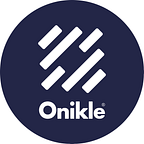Academic Journals: Guardians of Science?
What is the first thing you think of when you hear about academic journals? Your goal as a researcher? A steppingstone for your career? An institution where they ensure the quality of science that is seen by the world. All in all, people have this concept where major journals are guardians of science. But in reality, their excessive power and lack of professionalism has led to detrimental issues for many researchers. This blog will cover the unthinkable for many researchers: peer-reviewers appointed by journals plagiarizing the submitted works instead of checking and providing meaningful feedback.
While only a few instances of peer reviewers stealing material from manuscripts and passing it off as their own recorded, it does happen, and many writers are afraid of it. The extent of this issue cannot be measure. After Michael Dansinger of Tufts Medical Center learned that a paper he had sent to Annals of Internal Medicine, which was initially rejected. Sometime late the same content had been republished, but the journal accepted one of the reviewers as one of the co-authors, he published a letter from Dansinger to the reviewer, along with an editorial describing what had happened.
He writes in his letter:
“It took 5 years from conceptualization of the study to publication of the primary analysis (1). This study was my fellowship project and required a lot of work. It took effort to find the right research team, design the study, raise the funds, get approvals, recruit and create materials for study participants, run the diet classes, conduct the study visits, compile and analyze the study data, and write the initial report. The work was funded by the U.S. government and my academic institution. The secondary analysis that you reviewed for Annals used specialized methods that took my colleagues many years to develop and validate. In all, this body of research represents at least 4000 hours of work.”
The pain and anger can be felt from his words. Annals of Internal Medicine’s Editor-in-Chief Christine Laine responds to the accusation by apologizes and mentions, “My colleagues and I find it deeply disturbing that someone whom we selected to review a manuscript entrusted to us would commit such heinous intellectual theft.” This proves that journal is not a institution where they support researchers.
Dansinger later in interviews says:
My aim is to raise awareness in the scientific/academic community and general public that it is possible for peer reviewers to steal an entire manuscript and publish it as their own in an unsuspecting academic journal. I’m not looking to “tattle” on the perpetrator–doing so starts to look like revenge rather than achieving the more important objectives, and may even draw attention away from those objectives.
Another issue with peer-review system adopted by Journals is fake reviews. As with many items, the purpose is good: to find a broader network of reviewers, particularly in more specialized fields, by asking the obvious authority — the author, who should be ideally positioned to recommend appropriate authorities and maybe save the editor a lot of work. Unfortunately, what people find now and then is that the reviewers have indicated they turn out to be false. Or, they are indeed actual and relevant authority for the subject matter, but they are helpfully suggested along with “their” email addresses, which have been faked and ultimately lead back to the author (and a positive review, of course). At times the deceit is ridiculously apparent, but at times the manipulation is carried out with alarming plausibility.
Let’s take an example of Amy Barnhorst, Vice Chair at University of California Davis. When she was reading a published journal article about firearm suicide and quickly realized it was hers and her colleague’s writing, but it was credited people she did not know. The ones who were credited were an editor who had solicited a piece from; the other was a retired judge with not a publication to his name. They submitted a draft to the editor but pulled the paper because they felt they were not getting proper guidance and advice.
Amy tweets, “The published version was OUR case vignette, OUR epi section, OUR clinical interventions, OUR tips on how to counsel patients, and OUR bibliography, then some weird, unscientific section at the end about psychotherapizing the violence right out of people (NOT ours). About 40% of it was verbatim from our draft, and 30% was 7th grade level plagiarism: change “big” to “large”, “almost half” to “48%”, rearrange some clauses. You would seriously be kicked out of middle school for this; it was not subtle. By the MANAGING EDITOR OF THE JOURNAL”
What is crazy about this story is Amy brought up the issue to Editor in Chief, they had to wait for a week to hear no apology and being offered co-authorship. In the end she mentions, she has brought the issue with Springer and working with an attorney and to take appropriate legal steps, so they don’t have any opportunity to do this again.
The problems and cases in this blog are few ones that surfaced. Under the thread of Amy Barnhorst, a lot of people claimed that they suffered the same issue but did not have the capabilities or knowledge on tackling an academic journal. What we can say is Academic Journals are not Guardian of Science. Only people can ensure science is fair, not some journal with so called “history.”
If you are interested in our blogs, please register your email address in the following link to get notifications through our newsletter:
Written by Wanonno Iqtyider
